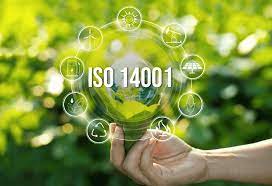ISO 14001 Certification: Driving Sustainable Environmental Management
ISO 14001 is the internationally recognized standard for Environmental Management Systems (EMS). It provides a framework for organizations to manage their environmental responsibilities systematically, reduce their environmental impact, and comply with relevant regulations. Achieving ISO 14001 certification demonstrates a commitment to sustainability and environmental stewardship.
This article explores the importance of ISO 14001 certification, the certification process, industries that benefit from it, and the advantages of implementing the standard.
1. Importance of ISO 14001 Certification
Environmental concerns are a growing global priority, and organizations must adopt sustainable practices to meet stakeholder and regulatory expectations. ISO 14001 certification is significant because:
- Environmental Responsibility: It helps organizations identify and manage environmental risks, contributing to the reduction of pollution and resource depletion.
- Regulatory Compliance: Certification ensures compliance with environmental laws and regulations, helping organizations avoid penalties and reputational damage.
- Reputation Management: ISO 14001 certification demonstrates a commitment to sustainability, enhancing trust among customers, investors, and other stakeholders.
- Operational Efficiency: The standard encourages resource optimization, reducing waste and operational costs.
In an era of climate change and environmental degradation, ISO 14001 certification positions organizations as leaders in sustainability.
2. The ISO 14001 Certification Process
Obtaining ISO 14001 certification involves a series of steps to establish and implement an effective EMS. The process typically includes:
- Initial Assessment: Conducting a gap analysis to compare existing environmental practices with ISO 14001 requirements.
- Developing the EMS: Establishing policies, objectives, and processes to address environmental risks and opportunities. This includes:
- Environmental Policy: Defining the organization’s commitment to sustainability.
- Risk Assessment: Identifying environmental aspects and their potential impacts.
- Legal Compliance: Ensuring adherence to relevant environmental laws and regulations.
- Implementation: Integrating the EMS into daily operations, including staff training and process adjustments.
- Internal Audit: Evaluating the effectiveness of the EMS and identifying areas for improvement.
- Certification Audit: Engaging an accredited certification body to assess the organization’s compliance with ISO 14001. This involves:
- Stage 1 Audit: Reviewing documentation and readiness for certification.
- Stage 2 Audit: Verifying the implementation and effectiveness of the EMS.
- Certification Issuance: If successful, the organization receives ISO 14001 certification.
Maintaining certification requires regular audits and continuous improvement of the EMS.
3. Industries That Benefit from ISO 14001 Certification
ISO 14001 certification is applicable across various industries and sectors, including:
Conclusion
ISO 14001 certification is a powerful tool for organizations committed to managing their environmental impact and achieving sustainable growth. By implementing the standard, businesses can reduce their ecological footprint, comply with regulations, and enhance their reputation among stakeholders.
Deniel Julian Details
User Profile
- Full name
- Deniel Julian
- Email address
- denieljulian79@gmail.com
- Join Date
- 2025-05-17
- State
- City
- Pincode
- Address
- Follow us on Facebook
- Follow us on Twitter
- Website Name
- Bio

